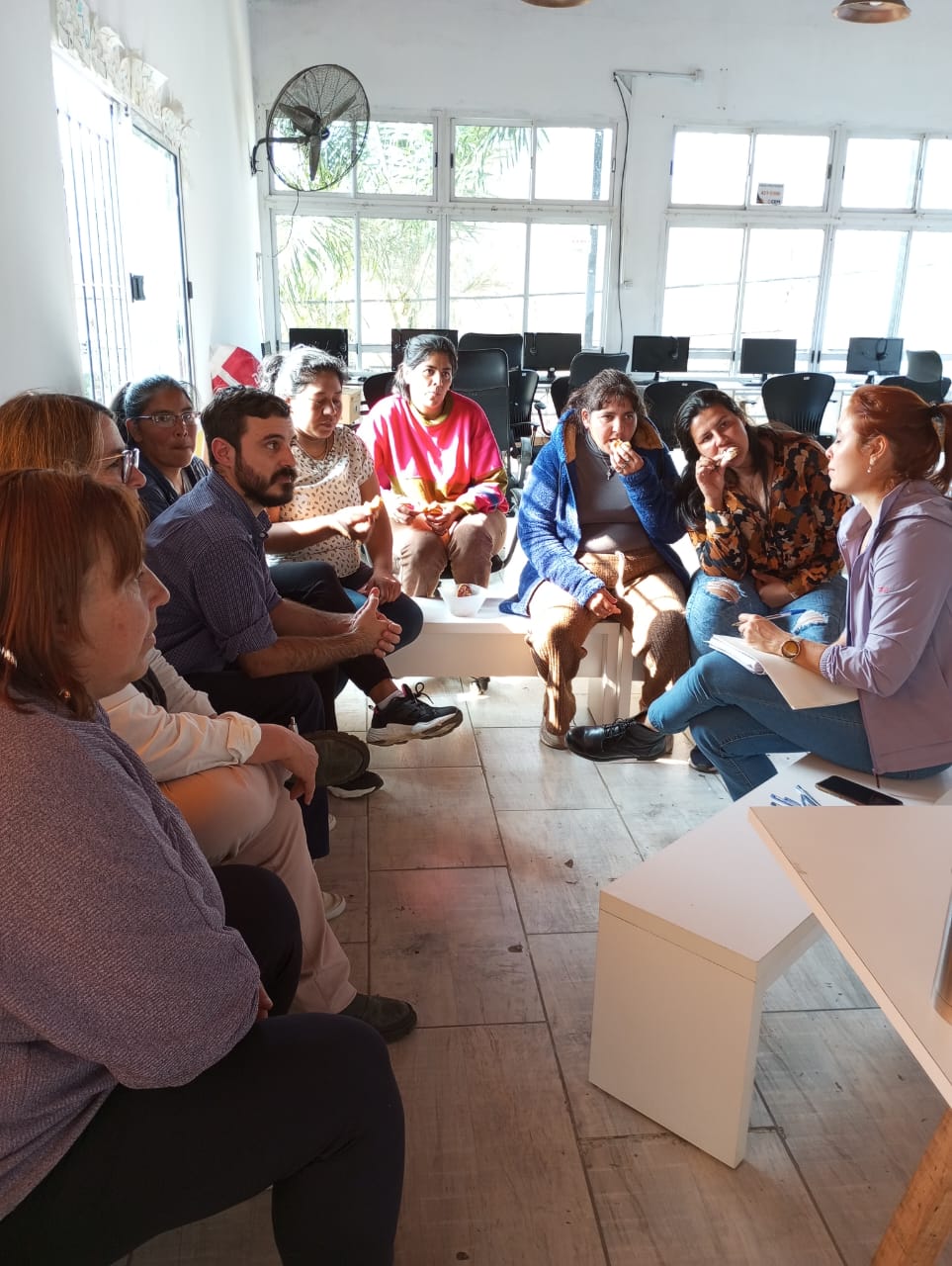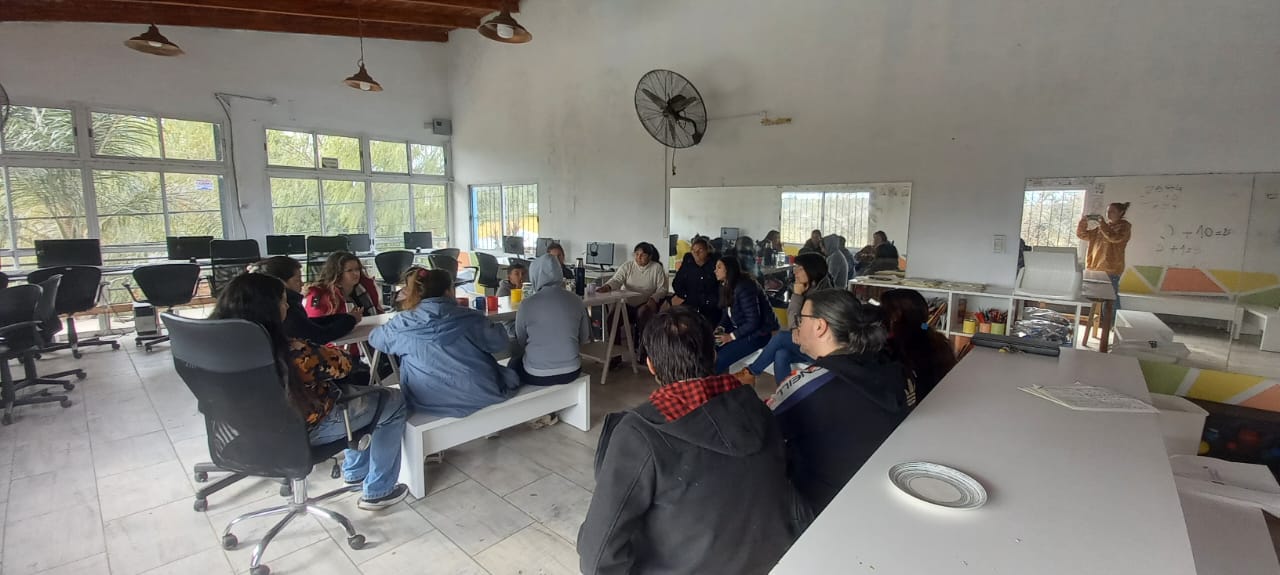Projecting futures

Municipality
Category / Sub-Category / Topic
Education, Literacy
Type of investment needed
Grant
The challenge
The project
Know more...
Investment
(*): In kind/pro bonus
(**): Financing
Funds
Needed
Covered
Solicited
Investment
(*): In kind/pro bonus
(**): Financing
"Writing materials, reflective journaling, and visual resources for life mapping Facilitators specialised in personal development and life coaching (x2)" (*) (**)
u$s 200.00
u$s 0.00
u$s 200.00
Literacy booklets for adults’ -Home study kit, Home study kit’. (*) (**)
u$s 200.00
u$s 0.00
u$s 200.00
Study materials and printed guides, (*) (**)
u$s 200.00
u$s 0.00
u$s 200.00
Materials for trade workshops, specific tools, (*) (**)
u$s 200.00
u$s 0.00
u$s 200.00
Fuel (*) (**)
u$s 1320.00
u$s 0.00
u$s 1320.00
Cleaning and maintenance equipment provided by the Municipality (*)
u$s 1200.00
u$s 1200.00
u$s 0.00
Accompanying tutors and mentors to advise mothers in their personal and professional planning (x2) (*) (**)
u$s 960.00
u$s 0.00
u$s 960.00
Educational psychologist (*) (**)
u$s 2880.00
u$s 0.00
u$s 2880.00
Instructors specialised in each trade and counsellors for emotional education (x4) (*) (**)
u$s 3840.00
u$s 0.00
u$s 3840.00
Technological infrastructure for the platform, technical support equipment (*) (**)
u$s 2060.00
u$s 0.00
u$s 2060.00
Job placement consultants, employer follow-up (x3) (*) (**)
u$s 7200.00
u$s 0.00
u$s 7200.00
IT staff, employability coordinator, job mentors (x2) (*) (**)
u$s 4800.00
u$s 0.00
u$s 4800.00
Internet services (*) (**)
u$s 720.00
u$s 0.00
u$s 720.00
Accompanying tutors and mentors to advise mothers in their personal and professional planning (x2) (*) (**)
u$s 960.00
u$s 0.00
u$s 960.00
Pedagogical coordinator (*) (**)
u$s 5760.00
u$s 0.00
u$s 5760.00
Literacy teachers (x4) (*) (**)
u$s 11520.00
u$s 0.00
u$s 11520.00
Specialised tutors at primary and secondary level, academic counsellors (x4) (*) (**)
u$s 5760.00
u$s 0.00
u$s 5760.00
FinEs programme coordinators, support facilitators, administrative staff for enrolment management and assistance (x2) (*) (**)
u$s 5760.00
u$s 0.00
u$s 5760.00
training coordinators, administrative staff for registration and attendance (x2) (*) (**)
u$s 5760.00
u$s 0.00
u$s 5760.00
Supervisory assistants and support staff of the Municipality to guide participants in their tasks (*)
u$s 1000.00
u$s 1000.00
u$s 0.00
Funds
Needed
Covered
Solicited
Materiales de escritura, diarios de reflexión, y recursos visuales para la creación de mapas de vida (*) (**)
u$s 200.00
u$s 0.00
u$s 200.00
"Cuadernillos de alfabetización para adultos -Kit de estudio para el hogar" (*) (**)
u$s 200.00
u$s 0.00
u$s 200.00
Materiales de estudio y guías impresas para 100 personas (*) (**)
u$s 200.00
u$s 0.00
u$s 200.00
Materiales para los talleres de oficios, herramientas específicas (*) (**)
u$s 200.00
u$s 0.00
u$s 200.00
Combustible (*) (**)
u$s 1320.00
u$s 0.00
u$s 1320.00
Equipos de limpieza y mantenimiento proporcionados por la Municipalidad (*)
u$s 1200.00
u$s 1200.00
u$s 0.00
Funds
Needed
Covered
Solicited
Facilitadores especializados en desarrollo personal y coaching de vida (x2). 8 horas mensuales por 4 meses (*) (**)
u$s 960.00
u$s 0.00
u$s 960.00
Psicopedagoga (*) (**)
u$s 2880.00
u$s 0.00
u$s 2880.00
Instructores especializados en cada oficio y orientadores para educación emocional (x4) (*) (**)
u$s 3840.00
u$s 0.00
u$s 3840.00
Infraestructura tecnológica para la plataforma, equipo de soporte técnico (*) (**)
u$s 2060.00
u$s 0.00
u$s 2060.00
Consultores en inserción laboral, seguimiento de empleadores(x3) (*) (**)
u$s 7200.00
u$s 0.00
u$s 7200.00
Personal de IT, coordinador de empleabilidad, mentores laborales (x2) (*) (**)
u$s 4800.00
u$s 0.00
u$s 4800.00
Servicios Internet (*) (**)
u$s 720.00
u$s 0.00
u$s 720.00
Funds
Needed
Covered
Solicited
Tutores de acompañamiento y mentores para asesorar a las madres en su planificación personal y profesional (x2) (*) (**)
u$s 960.00
u$s 0.00
u$s 960.00
Coordinadora pedagógica (*) (**)
u$s 5760.00
u$s 0.00
u$s 5760.00
Maestras alfabetizadoras (x4) (*) (**)
u$s 11520.00
u$s 0.00
u$s 11520.00
Docentes tutores especializados en nivel primario y secundario, orientadores académicos (x4) (*) (**)
u$s 5760.00
u$s 0.00
u$s 5760.00
Coordinadores del programa FinEs, facilitadores de apoyo, personal administrativo para gestión de inscripciones y asistencia (x2) (*) (**)
u$s 5760.00
u$s 0.00
u$s 5760.00
Coordinadores de capacitación, personal administrativo (x2) (*) (**)
u$s 5760.00
u$s 0.00
u$s 5760.00
Asistentes de supervisión y personal de apoyo de la Municipalidad para guiar a las participantes en sus tareas (*)
u$s 1000.00
u$s 1000.00
u$s 0.00



